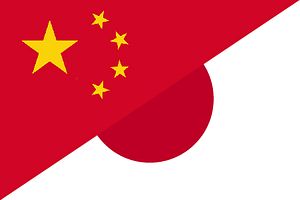The increasingly belligerent Sino-Japanese relationship has transcended the limit of bilateral relations, becoming a major world issue. In a BBC Newsnight TV episode on January 8, 2014, Chinese Ambassador to the UK Liu Xiaoming and his Japanese counterpart Keiichi Hayashi engaged in a tense debate over the ongoing Sino-Japanese spat. From deliberately arranged positions in two separate studio rooms, both ambassadors firmly insisted on each country’s claims.
On the matters of the disputed islands and Abe’s militarism, Ambassador Keiichi Hayashi denied China’s claims and accusations. He emphasized that the island dispute “is a matter of principle, it is a matter of sovereignty … He (Abe) has no intention of changing the core tenets of pacifism.” Meanwhile Chinese Ambassador Liu described the current situation as “very serious” and particularly stressed the important role of the Cairo Declaration, according to which Japan should return to China the territories it seized by force. Interestingly, Liu also made a special effort to reach out to the British audience by quoting Winston Churchill’s famous saying: “Those who fail to learn from history are doomed to repeat it.”
The BBC debate, though not held face-to-face, did provide us with a quick snapshot of the current Sino-Japanese standoff. Overall, Liu seemed to be more confident and he talked a little more logically and skillfully than Hayashi. The Japanese ambassador was stopped several times by very straight-forward questions raised by BBC host Jeremy Paxman, and Hayashi stumbled a little bit when he tried to formulate his responses.
This TV debate, though eye-catching, is just a small part of the current Sino-Japanese public opinion war. Beijing seems to have sounded the bugle for a global battle in major global media outlets. Back in 2012, high-ranking Chinese officials and diplomats had already begun writing articles for international media to criticize the Japanese government’s nationalization of the disputed islands. However, the recent media offensive by a number of Chinese ambassadors carries an even clearer and stronger message: Beijing is trying to take the initiative by fighting back using the platform of international public diplomats. These “heavyweight” contributors include Chinese ambassadors to the United States, the United Kingdom, Russia, Japan, South Korea, Pakistan, Australia, Austria, Canada, Mexico, South Africa, and so on. With more well-educated diplomats who can speak English and other foreign languages fairly well, Beijing hopes to find more opportunities to reach global audiences.
So far, the highlight of this wave of media attacks is probably the inclusion of Lord Voldemort. Ambassador Liu Xiaoming wrote an article for The Telegraph on January 1 condemning Abe’s recent moves by relating Japan’s militarism to Lord Voldemort, an extremely evil and violent figure in the popular book and film series Harry Potter. Only a few days later, Ambassador Keiichi Hayashi responded with an article in the same newspaper titled “China risks becoming Asia’s Voldemort.”
In international popular culture, it’s hard to think of a figure more evil and dangerous to peace-loving people than Voldemort. With China and Japan calling each other Voldemort, there’s little chance of reconciliation between these two countries in the near future. Maybe it is still too early to tell whether Liu or Hayashi won this round of wrangling, but the fact is that China is becoming smarter in its public relations battles. China is utilizing more efficient means and approaches to try and win more international empathy and support in Western media.
This could be a very important change with long-lasting significance. In handling its disputes with Japan, it may help China to drum up more international understanding or empathy, particularly from those who won World War II. In addition, appealing to the international public may help to soften China’s image. For years, China has appeared rather stiff and aggressive to Western media, especially recently as Beijing has taken strong steps in the East China Sea disputes.
Winning public opinion warfare is just as important as other means of handling disputes, like political negotiation or military coercion. Sometimes, the PR battle is even more important because it shapes a sense of national image. China understands this and so does Japan.
How far can these two neighbors take their public verbal confrontation? For China, such a media offensive is obviously part of Beijing’s carefully-calculated and well-designed strategy. But when Japan gives very straight-forward responses, these two countries should watch out. There is no need to turn this argument into what BBC host Jeremy Paxman called “childish abuse.” Reconciliation, rather than war, is what both Beijing and Tokyo can actually afford.

































